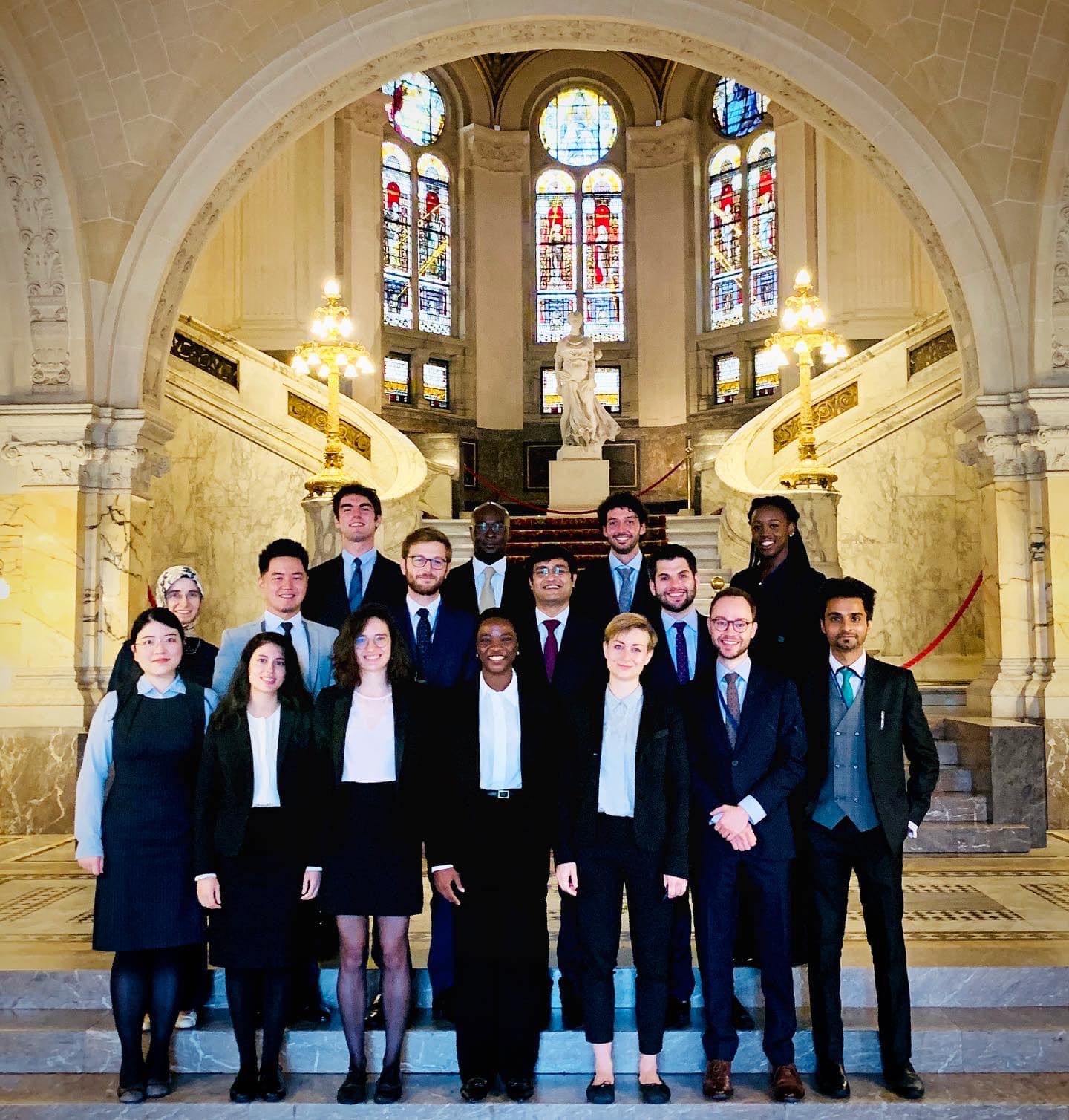ICJ Fellowship – Hannes Jöbstl
 In the academic year of 2020-2021, I had the immense privilege of participating in the Judicial Fellows (JF) Programme of the International Court of Justice (ICJ). As part of this programme, which is supported by the Oxford Law Faculty, Judicial Fellows are assigned to a Member of the Court and undertake responsibilities similar to those of a law clerk at domestic judicial institutions. This involves in-depth research on questions of international law, the preparation of memoranda and internal documents, as well as the review of evidence and Party submissions. My Fellowship was special in this regard as I was assigned to two judges: H.E. Judge Giorgio Gaja, who retired from the Court in February 2021, as well as his successor, H.E. Judge Georg Nolte.
In the academic year of 2020-2021, I had the immense privilege of participating in the Judicial Fellows (JF) Programme of the International Court of Justice (ICJ). As part of this programme, which is supported by the Oxford Law Faculty, Judicial Fellows are assigned to a Member of the Court and undertake responsibilities similar to those of a law clerk at domestic judicial institutions. This involves in-depth research on questions of international law, the preparation of memoranda and internal documents, as well as the review of evidence and Party submissions. My Fellowship was special in this regard as I was assigned to two judges: H.E. Judge Giorgio Gaja, who retired from the Court in February 2021, as well as his successor, H.E. Judge Georg Nolte.
My work at the Court confronted me with a wide range of cases and fascinating legal issues, ranging from maritime boundary delimitations to questions of war reparations for large scale armed conflicts. Being exposed to the whole body of international was also a welcome contrast to the very narrow and subject-specific issues I am usually dealing with in my doctoral research. In addition, witnessing the collective decision making process at the Court, as well as the various stages of a draft judgment was an extremely enriching experience. Moreover, the Court has vast resources to support the research tasks of Judicial Fellows, including an excellent library with incredibly friendly and competent staff. I was even allowed to make use of these resources for my doctoral research, which benefitted enormously from this unique access.
Unfortunately, the Court has not been spared by the effects of the COVID-19 Pandemic. Many Judges and staff members were unable to return to the Hague or preferred to work from home for safety reasons. In addition, many hearings had to be postponed or were held only in a hybrid format, taking place mainly online instead of in the Great Hall of Justice. While this initially posed an immense challenge to the Court and its ability to carry out its functions, I was impressed how quickly the Registry (and especially the IT department) managed to transfer this ancient institution into the 21st century. Moreover, the Registrar did his utmost to support the Judicial Fellows under these difficult circumstances, including by providing us with laptops and remote access to all necessary documents.
Finally, I need to mention that I had the privilege to undertake this Fellowship with 15 brilliant colleagues from around the world. I would not have made it through the long Dutch lockdown winter were it not for our intellectually-stimulating lunch time discussions and walks through the Scheveningen forest. The latter have even led to a joint-research project, which will hopefully culminate in a publication soon. I look forward to following my colleagues’ future carriers and have no doubt that many of them will leave their mark on international law.
For all these reasons, I would like to thank Judges Gaja and Nolte, as well as their incredible staff, for providing me with this invaluable opportunity and for having made me a member of their team. I would also like to express my sincere gratitude to the Law Faculty and particularly the Public International Law Group for endorsing my application and for providing the financial support necessary to undertake this Fellowship.

